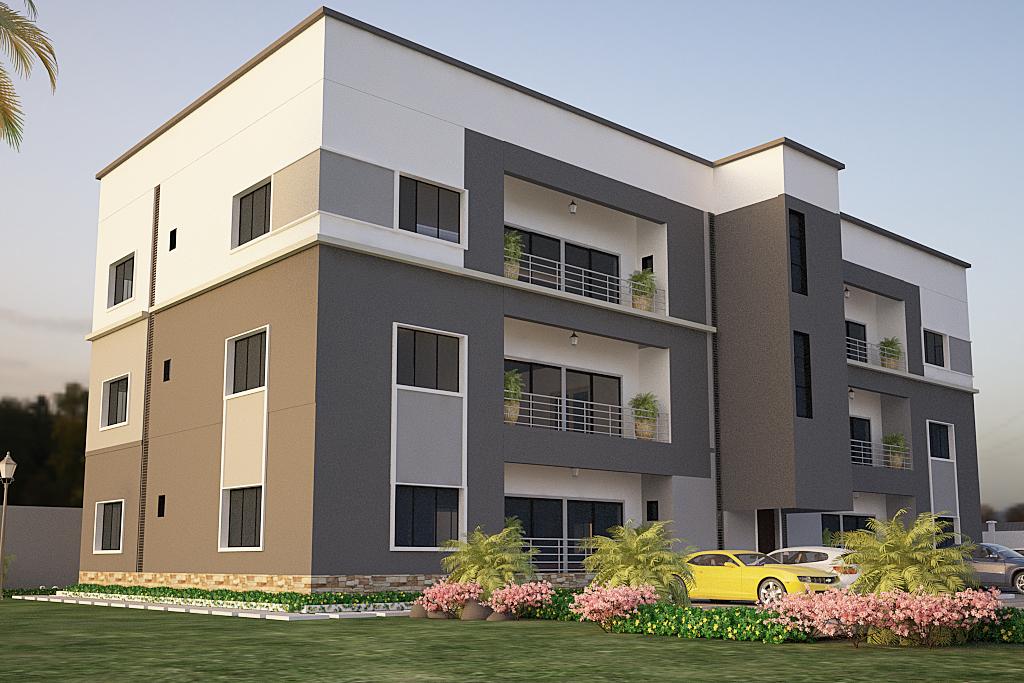In a dramatic turnaround in Nigeria’s economic narrative, recent statistics from the National Bureau of Statistics (NBS) reveal a striking rise in the value of the real estate sector to ₦41.3 trillion as of 2024.
This leap—from ₦10.5 trillion in 2023 to ₦30.7 trillion within the same year and now exceeding ₦41 trillion—reflects improved GDP measurement methodologies and broader inclusion of property-related services.
Today, real estate stands as Nigeria’s third-largest contributor to GDP contributor, surpassing historically dominant sectors like telecommunication, construction, and oil and gas. For industry stakeholders, this recognition has been a long time coming.
Many have argued that the sector has always held significant economic potential—through job creation, investment, and cultural value—but remained underreported for years.
What’s driving the growth?
This surge didn’t occur in a vacuum. One key driver of real estate’s rising profile is the increasing formalisation of real estate services. Activities like rental management, property broking, and land valuation now follow clearer documentation and pricing structures, allowing them to be more accurately reflected in national economic data.
Professional bodies such as the Nigerian institution of estate surveyors and valuers (NIESV) and the Real estate developers association of Nigeria (REDAN) have played a vital role by promoting regulatory standards while ensuring transparency and accountability.
These efforts have not only bolstered investor confidence but also enhanced the sector’s visibility in economic statistics.
Technology is also accelerating formalisation. With platforms offering online listings, virtual property inspections, and mobile payment systems, Nigeria’s real-estate market is gradually transitioning from an informal system to a more structured, trackable one.
Demand meets innovation
No less important are the efforts in triggering housing demand and supply through initiatives led by the private sector.
Across major cities like Lagos and Abuja, developers are adopting flexible payment plans and off-plan development models that can make homeownership more accessible to middle- and lower-income earners
Options such as mortgage financing and rent-to-own schemes are helping to clsoe Nigeria’s massive housing deficit while distributing economic benefits across a wide ecosystem, including construction workers, surveyors, financiers and facility managers.
Large-scale developments like Eko Atlantic in Lagos or Centenary City in Abuja are redefining what real estate means in Nigeria. These projects are designed not only as high-end residential and commercial spaces but as economic and innovation hubs, built with visions that integrate infrastructure, sustainability and smart urban planning.
Besides, with growing awareness around climate resilience and sustainable architecture, more developers are adopting energy-efficient designs and eco-friendly materials, aligning real estate development with environmental responsibility.
The rebased GDP figures redefine national priorities. They highlight the industry as a sleeping giant that has now been stirred awake. But with this recognition come critical questions. Can housing remain affordable? Will infrastructure keep pace with development? Who truly benefits from this growth?
The onus now falls on both the government and stakeholders to sustain this momentum through inclusive policies that priotitise access to mortgage financing, secure land ownership and urban infrastructure development.
As Nigeria’s population surges and urbanisation expands, real estate offers oen of the most promising paths to inclusive economic growth, becoming a cornerstone for job creation, national development and economic security.
Nigeria's real estate sector has experienced a significant surge, with its value rising to ₦41.3 trillion in 2024, up from ₦10.5 trillion in 2023. This growth can be attributed to improved GDP measurement methodologies and the formalization of real estate services like rental management and land valuation. The sector now stands as the third-largest contributor to Nigeria's GDP, surpassing traditional industries such as telecommunications and oil and gas.
The formalization efforts, led by bodies like NIESV and REDAN, have bolstered investor confidence and enhanced transparency through clearer documentation and regulatory standards. Technology also plays a role by offering online listings and mobile payment systems, transitioning the market from an informal to a structured system. Additionally, private sector initiatives, including flexible payment plans and mortgage financing, are addressing housing demand and narrowing the housing deficit, spreading economic benefits across various stakeholders such as construction workers and financiers.
Furthermore, large-scale projects like Eko Atlantic and Centenary City are becoming economic and innovation hubs, incorporating smart urban planning and sustainable architecture. However, this growth poses questions regarding the affordability of housing, infrastructure development, and who ultimately benefits. Sustainable momentum will depend on government and stakeholder policies prioritizing mortgage access, land ownership, and urban infrastructure development in light of Nigeria's growing population and urbanization trends. Real estate is poised as a significant driver of national development and economic security.






